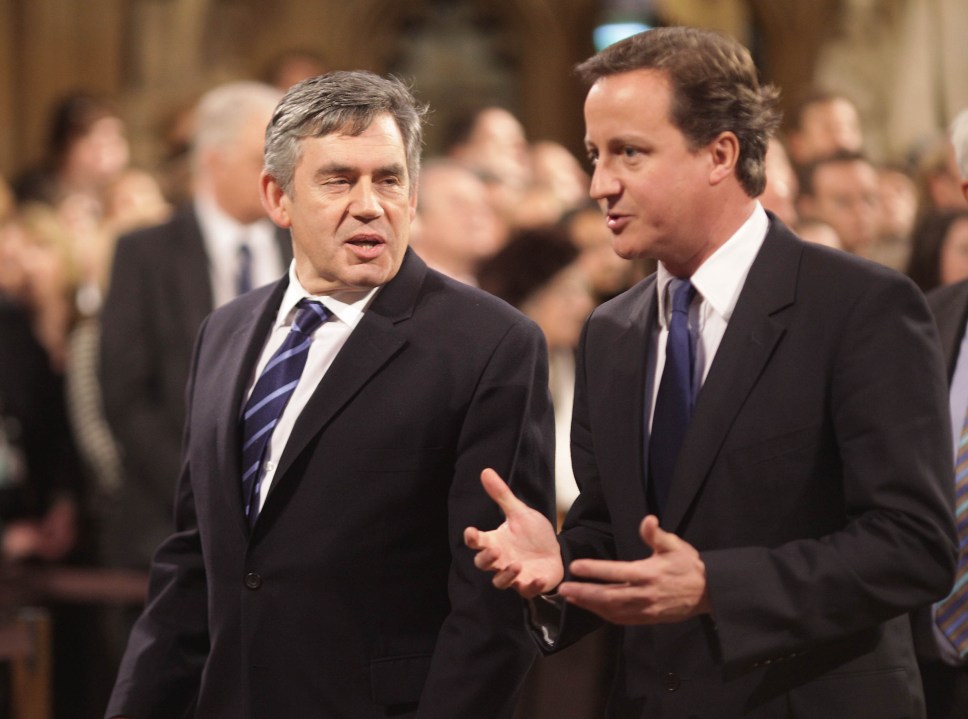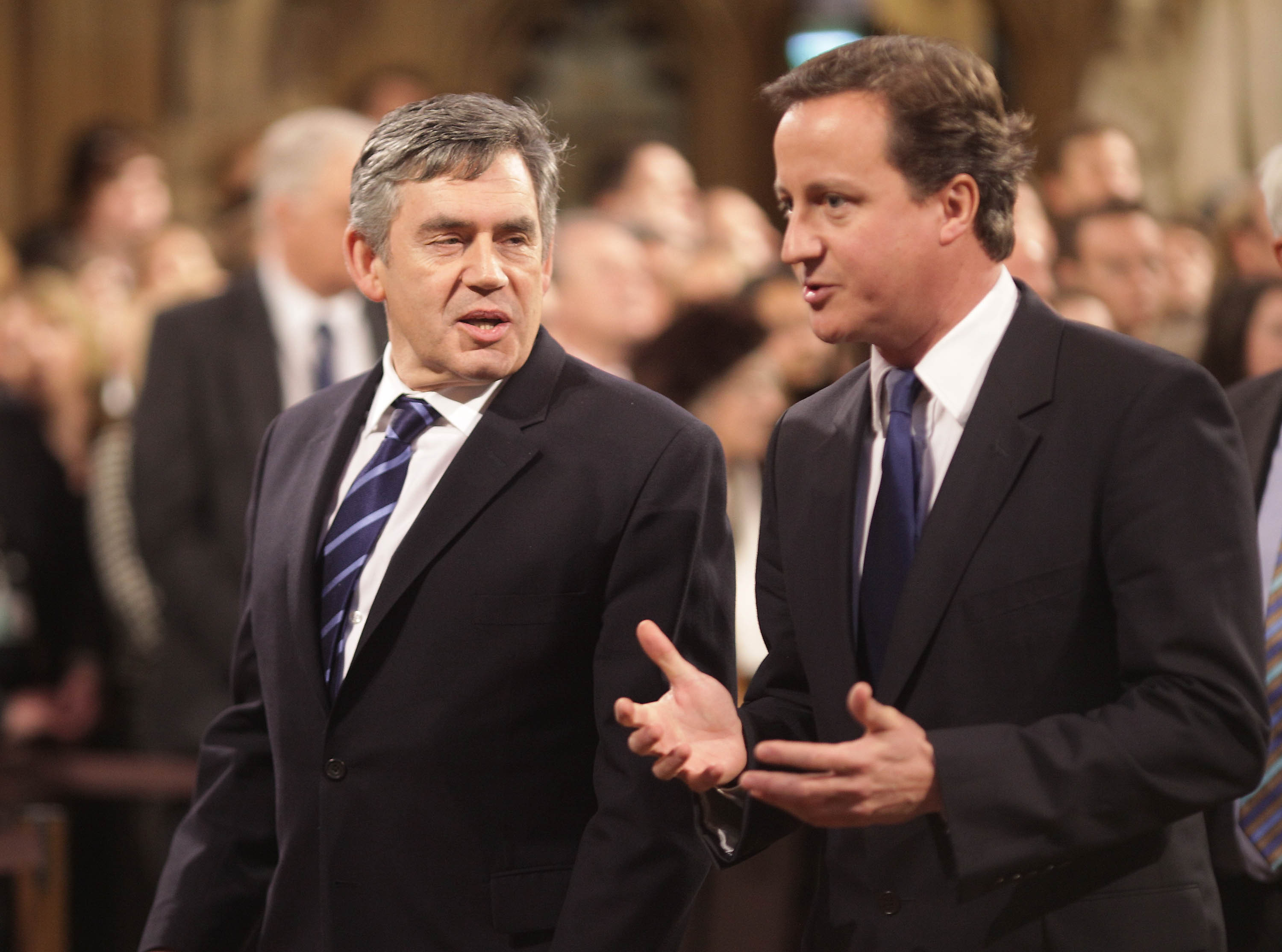 Gordon Brown has walked straight into George Osborne’s trap. After bleating that the national insurance tax cut is unaffordable, he has decided to make this a massive election dividing line – claiming that this teeny (1 percent of state spending) tax cut somehow poses a mortal danger to an economic recovery. Please, God, let him keep on this message through the campaign. “The Tories are proposing to cut your taxes and make you better off – stop this lunacy, and vote Labour”.
Gordon Brown has walked straight into George Osborne’s trap. After bleating that the national insurance tax cut is unaffordable, he has decided to make this a massive election dividing line – claiming that this teeny (1 percent of state spending) tax cut somehow poses a mortal danger to an economic recovery. Please, God, let him keep on this message through the campaign. “The Tories are proposing to cut your taxes and make you better off – stop this lunacy, and vote Labour”.
But Alastair Darling has taken it further, with a significant piece of language on the radio this morning. The Tory tax cut, he says, is “taking money out of the economy” at a vulnerable time. As he said at 7.52am in Today:
This has Balls written all over it. The logic is that the state IS the economy, and that any money denied to the state is therefore a risk. This cuts to the heart of what David Cameron has been talking about. One of his best-ever lines is that, “There is such a thing as society – it’s just not the same thing as the state”. Now, Osborne has the wonderful opportunity to explain some basic economics to Darling, Brown and Balls. There is such a thing as the economy. It’s just not the same thing as the state.“If you take money out of the economy now, in a year when you’re beginning to see recovery, that is taking a great risk…”
Rather than “taking money out of the economy”, a tax cut (or, in the case of NI, a cancelled tax increase) will keep money within it, ensuring the wealth created is allocated more wisely, justly and effectively by leaving it in the hands of people who earn it. This really is the dividing line between left and right: a fundamental difference on how you see society, wealth creation and the role of government.
Cameron and Osborne now have a clear opportunity to take all this above the financial dullness and make it a battle of values. The Tories should seize on this opportunity, to get across an aspect of their Big Idea: how best to help the economy? The answer is not to confiscate more of people’s hard-earned, and feed it to a 6 million strong bureaucracy. The answer is to reduce the burden the state places on families, knowing that they will spend their money in a way that helps the economy more. It is an act of faith in society. In the small people. This embodies another one of Cameron and Osborne’s excellent slogans: “social responsibility, not state control”. This row could be tailor-made for the agenda Cameron has been advancing since his leadership days. It says: “we trust people. They don’t.”
The electorate is crying out for a different agenda. A different way of seeing society. When Cameron has tried to talk about his “big picture” in chin-stroking speeches, it has failed to cut through. The Tory machine is far better at riding the new agenda. They should ride the crest of this NI row, and leave voters in no doubt about the fundamental difference between the blues and the reds. A few weeks ago, The Spectator ran a cover asking “what’s the big idea, Dave?” This is the answer. Time to tell people about it.
UPDATE: Tim Worstall says that if the Tories fail to make spending cuts, then there will be debt-financed tax cuts which WOULD indeed take money out of the economy in the form of future debt interest repayments. As ever, Tim is right. But I have every confidence that the Tories will make those cuts. Why? Because the bond markets will force them to. Make no mistake: fiscal discipline will be imposed on whoever wins the next election by the markets who are getting jittery enough about the pathetic returns on gilts so far this year. Whether Osborne makes the cuts, or the IMF does so for him, they will come.
I should also add that the the Tory government will almost certainly raise about £15bn of extra taxes. Osborne says he’ll fill the deficit with an 80/20 cuts/tax ratio, and given that his 50p tax will raise nothing the need for tax rises on the masses will be all the greater. So let’s enjoy this NI cut while we can: sooner or later, VAT will be
raised, its remit extended, or both.








Comments